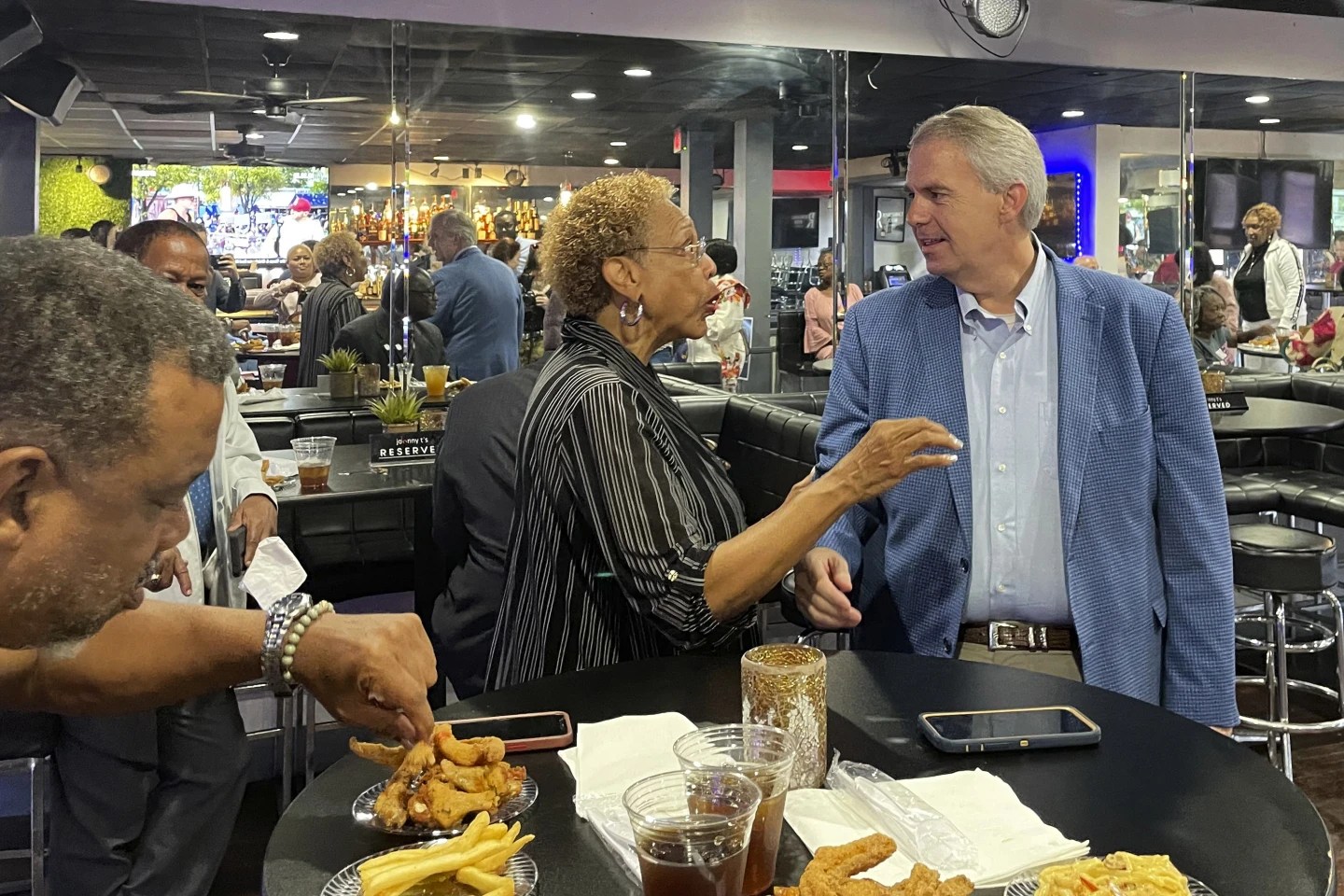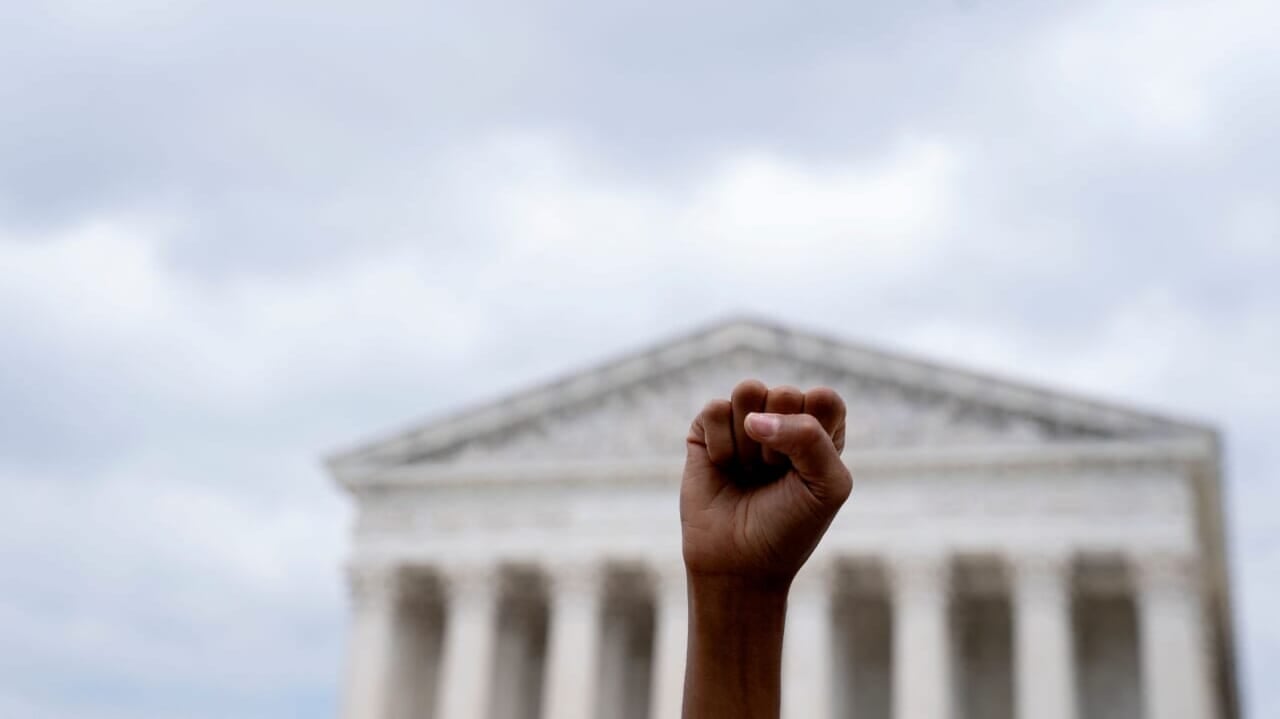Election Day 2023 could see Black history and early signs for 2024
Here’s what Black Americans should know about the Nov. 7 elections.
As political campaigns for the 2024 election are already underway, it’s easy to forget that Tuesday is also an important off-year election for millions of Americans.
In states across the country, voters will cast their ballots on Nov. 7 to elect their state representatives and local board members, determining which political party will have control in the coming years.
Other states will vote to elect governors, attorneys general, mayors, and important ballot measures on politically divisive issues. Tuesday’s elections are being closely watched as the outcomes could serve as the reading of the tea leaves for what Democrats and Republicans could expect in 2024 regarding voting patterns, including turnout among Black voters.
Here’s what Black Americans should know about the Nov. 7 elections.
Black history could be made
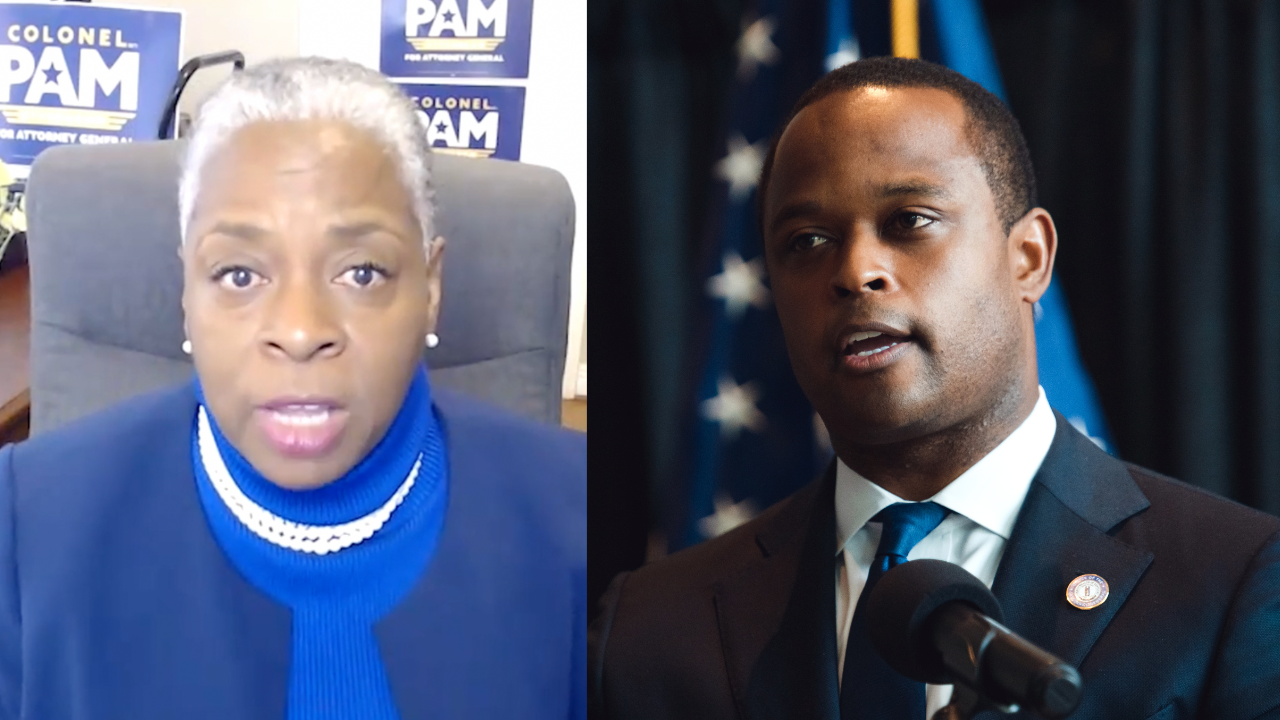
Several races tonight could result in Black history being made. In Kentucky, current Republican Attorney General Daniel Cameron is running to be the state’s first Black governor.
However, Cameron is running against a very popular incumbent governor, Democrat Andy Beshear. Cameron leveraged his endorsement from former President Donald Trump to appeal to Kentucky’s conservative voters during the campaign season; however, it is unclear what effect it will have at the ballot box.
It’s also unlikely Cameron will earn many votes from Black Kentuckians, as he notably received statewide and nationwide criticism for his handling of the case involving the 2020 killing of Breonna Taylor, a 26-year-old Black woman who was shot to death by Louisville police inside her apartment. Cameron’s refusal to bring charges against the officers who fired the fatal shots sparked outrage.
Activist Tamika Mallory, who rallied for justice in Taylor’s death and is close to Taylor’s mother, Tamika Palmer, relocated her social justice organization, Until Freedom, to Kentucky in a campaign effort to ensure Cameron is not elected.
Markus Batchelor, national political director at People For the American Way, told theGrio there would be “no confusion” about where Black voters stand in the gubernatorial race.
However, he said generally, it’s important that Black conservative candidates like Cameron, who do not align with the needs and concerns of Black Americans, not “draw from the pot of Black voters.”
“We saw more, for instance, Black men support Trump…,” said Batchelor, adding, “The Democratic Party has to get real about engaging Black men, in particular, in a more meaningful way.”
Also in Kentucky, state Rep. Pam Stevenson, a retired Air Force colonel, is vying to become the Bluegrass State’s first Black female attorney general. Stevenson is running against Russell Coleman, a Republican and former U.S. attorney.
In a recent interview with theGrio, Stevenson said, “Everything’s at stake” in her race, including abortion rights and democracy at large. The Democratic nominee has slammed Coleman’s connection to Trump, who appointed him to a Department of Justice commission during his administration.
“Don’t tell me you believe in law enforcement when your biggest person that you hail is the biggest person that’s breaking the law,” Stevenson said, referring to Trump’s four state and federal criminal indictments.
Stevenson said Coleman and Cameron are part of a national party trend that is more interested in a “power grab” than representing and protecting communities.
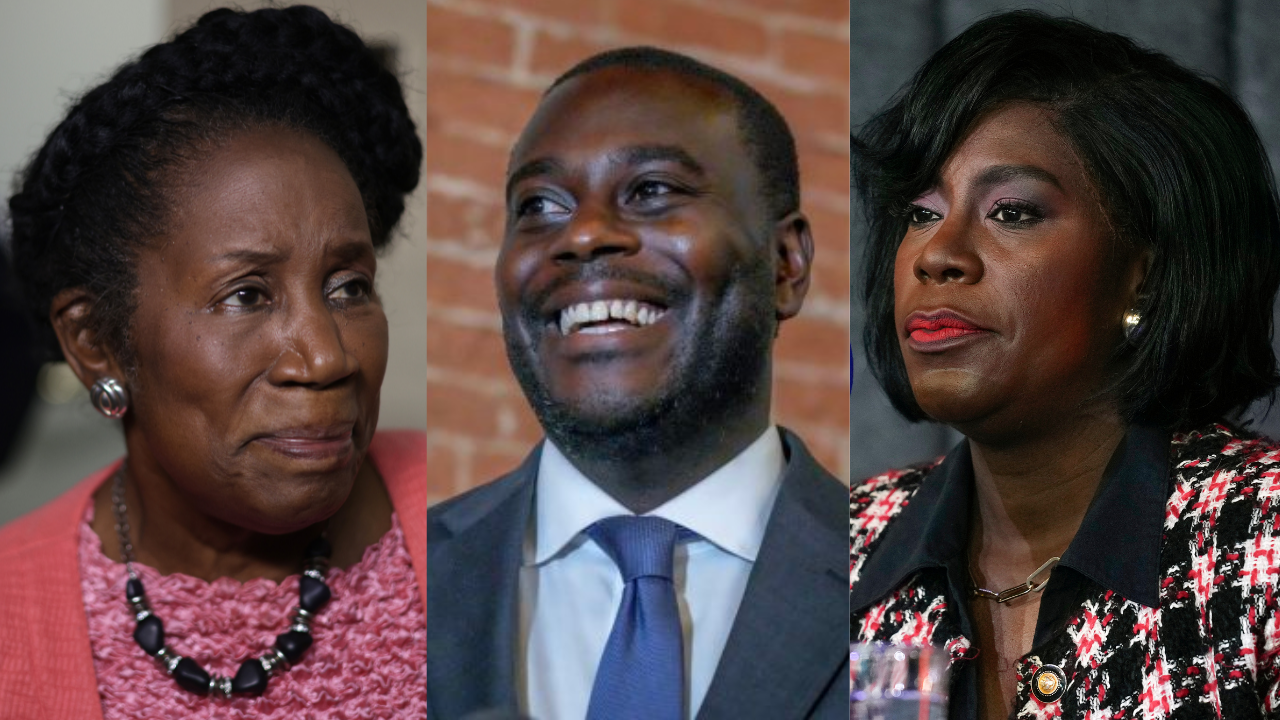
And in Rhode Island, Democrat Gabe Amo could become the first Black person and person of color elected to Congress from the state. The 35-year-old former Biden White House staffer is running against Republican and Marine veteran Gerry Leonard to fill the 1st Congressional District seat left vacant when Democrat David Cicilline resigned this year.
“I am very proud of every aspect of my identity as a Black man, as someone who was the child of West African immigrants – my dad from Ghana, my mom from Liberia. All of that is important,” Amo shared in a previous interview with theGrio. “But what is even more important is the job that I’m asking the people of Rhode Island and the 1st Congressional District to hire me for.”
There’s good news for Amo, his district has been reliably Democratic since 1995.
History could also be made on the local level in two major cities. In Houston, U.S. Rep. Sheila Jackson Lee, D-Texas, aims to become the city’s first Black female mayor after serving 13 terms in Congress. Jackson Lee leads the polls in a crowded race alongside State Sen. John Whitmire.
In Philadelphia, Democrat Cherelle Parker is running to become the city’s first Black female mayor. Parker’s Republican opponent is David Oh. Parker, a 51-year-old state legislator and former city council member, is favored to win the mayoral contest in America’s sixth-largest city, which has a 43% Black population.
Abortion is on the ballot
Abortion is on the ballot this election cycle. In Ohio, voters will determine whether to amend the state’s constitution to enshrine abortion rights after the Supreme Court struck down federal protections by overturning Roe v. Wade in 2022.
Voting trends have shown that when abortion is on the ballot, voters favor protecting abortion access, which is why Democrats and reproductive rights advocates are hoping to see a similar outcome in Ohio.
“Ohioans are going to show right-wing Republicans that they are tired of their overreach on the reproductive rights of women,” former Ohio state Sen. Nina Turner recently told theGrio.
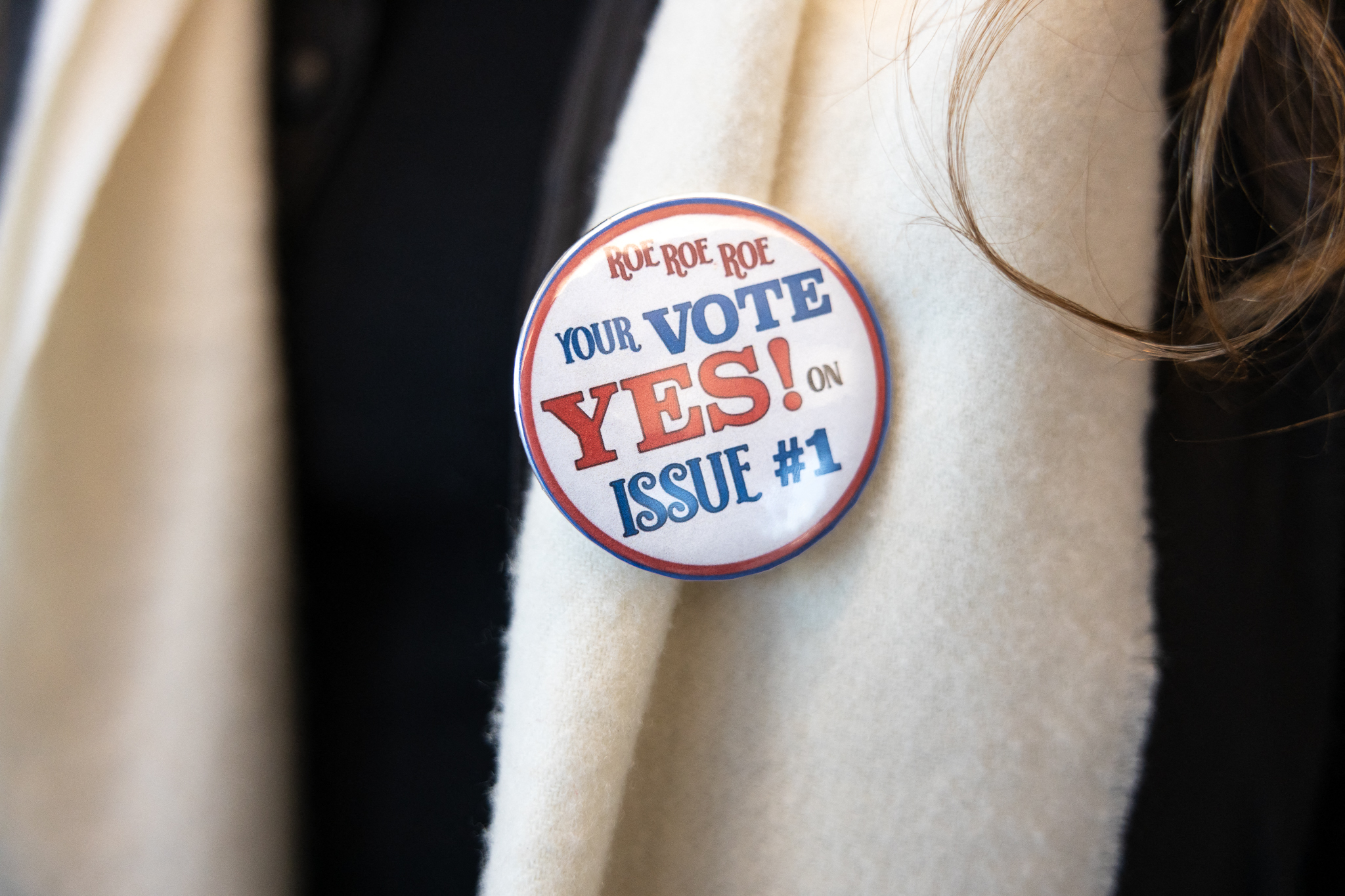
And in Virginia, voters will determine which party will have control of the General Assembly, which will be consequential for the issue of abortion.
While current state law bans abortion access after 26 weeks of pregnancy, Republican Gov. Glenn Youngkin is aiming to restrict abortion to 15 weeks. However, he and the Republican majority in the House of Delegates have been unable to enact such a law due to a divided government in which Democrats still control the state Senate.
If Republicans are able to win full control of the legislature, a 15-week abortion ban is almost certainly to be enacted. Activists have ascended on the ground to mobilize voters and encourage them to show up at the polls to prevent what is technically a purple state from moving further to the right.
“Youngkin came in with a very middle-of-the-road rhetoric that I think hid his real intentions, which are becoming more apparent this election,” said Batchelor of People For the American Way. “We’re talking about the 15-week abortion ban. We’re talking about the book banning at the state level.”
Batchelor added, “The stakes are high, both for…the national context, but also in very practical ways on the ground here in the state.”
Marijuana legalization
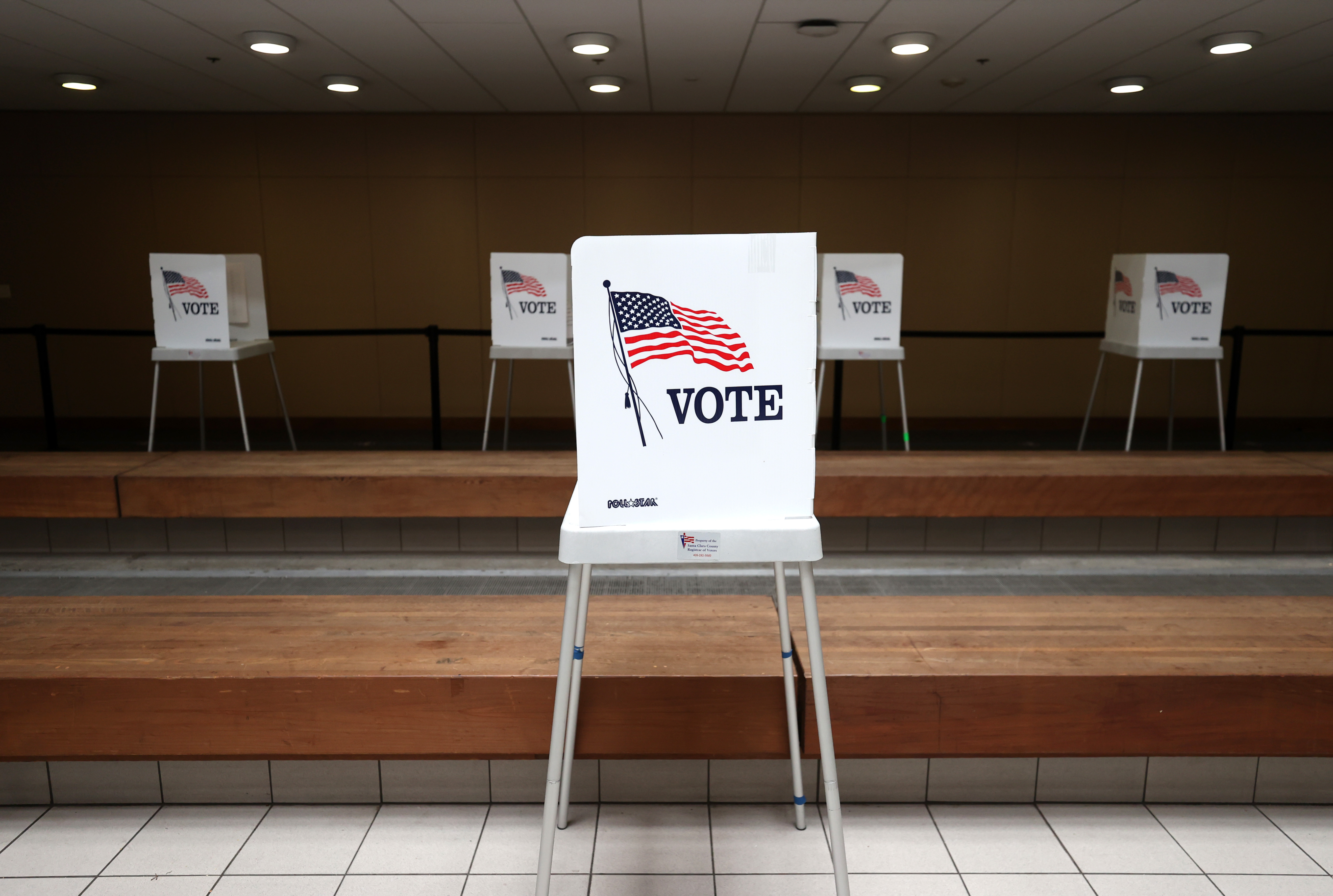
Ohio voters will also vote on a measure known as Issue 2 that could legalize the recreational use of marijuana. If it is approved, Ohio would become the 24th U.S. state to legalize cannabis, continuing a gradual movement by drug policy advocates to end the prohibition of marijuana, which disproportionately penalizes Black Americans in the criminal justice system.
As President Joe Biden works toward decriminalizing the drug on the federal level, advocates see the outcome in Ohio as an additional case study of where voters land on the issue.
“Ohio should give the president the confidence that it’s a popular enough issue that it should be taken up at the federal level,” said Batchelor. However, there is a caveat. “The legislative path today gets murky with Congress,” he added.
“Hopefully, it will also encourage [Biden] to take additional steps within his authority to right some of the wrongs of the war on drugs,” Batchelor continued. “I think that Ohio would be a good start to that conversation moving into 2024. Hopefully, activists are watching this vote and really do pivot that message into something that carries water in 2024.”
2024 temperature check
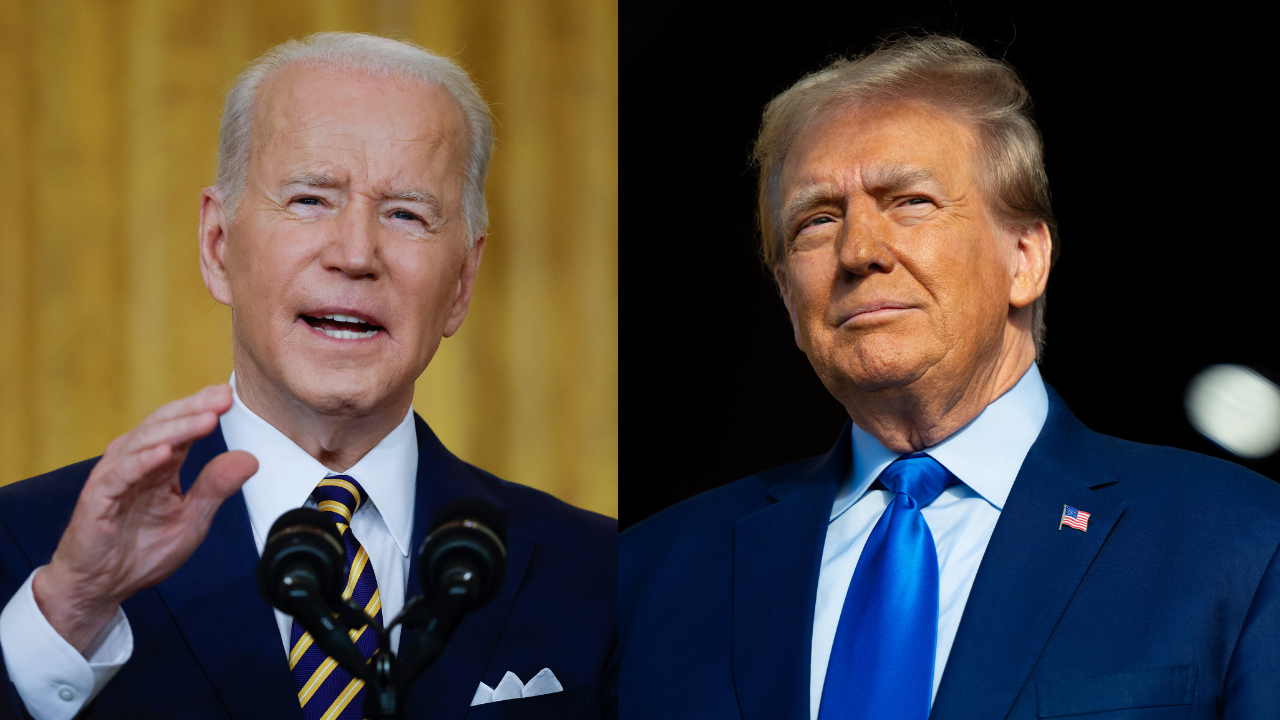
Though President Joe Biden and former President Donald Trump are not on the ballot this year, political strategists and operatives see the numerous races across the country as a temperature check for how voters feel about the presumptive 2024 Democratic and Republican presidential nominees and their respective party’s positions on key national issues.
Batchelor said People For the American Way hopes Tuesday’s results will “give us a really good narrative” heading into the 2024 election cycle, which he said the organization will pivot to first thing Wednesday morning after Tuesday’s 2023 contests.
Speaking to Republican efforts to restrict abortion, Black history books, and the like, he told theGrio he hopes the election will reflect that, “The extremism doesn’t play with voters….that these culture wars, don’t play with voters and hopefully, gives us some wind going into 2024.”
Political experts will also closely watch the turnout of Black Americans, who are reliably Democratic voters.
“We want Black voters to turn out for every election,” said Batchelor, whose organization is focused on the “long-term investment to rebuild civic participation, especially in disenfranchised and under-supported Black communities.
“No matter whether you’re supporting a specific candidate or not, Black voters overwhelmingly go and vote in the interest of justice, of freedom, of equality,” he added. “When the divides on those issues are so stark, especially in states like Kentucky and Virginia, that’s when you need Black voters to show up the most.”
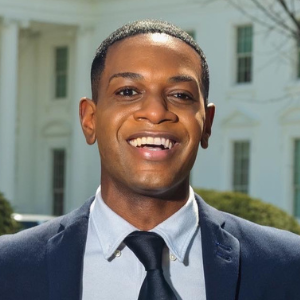
Gerren Keith Gaynor is a White House Correspondent and the Managing Editor of Politics at theGrio. He is based in Washington, D.C.
TheGrio is FREE on your TV via Apple TV, Amazon Fire, Roku, and Android TV. Please download theGrio mobile apps today!
